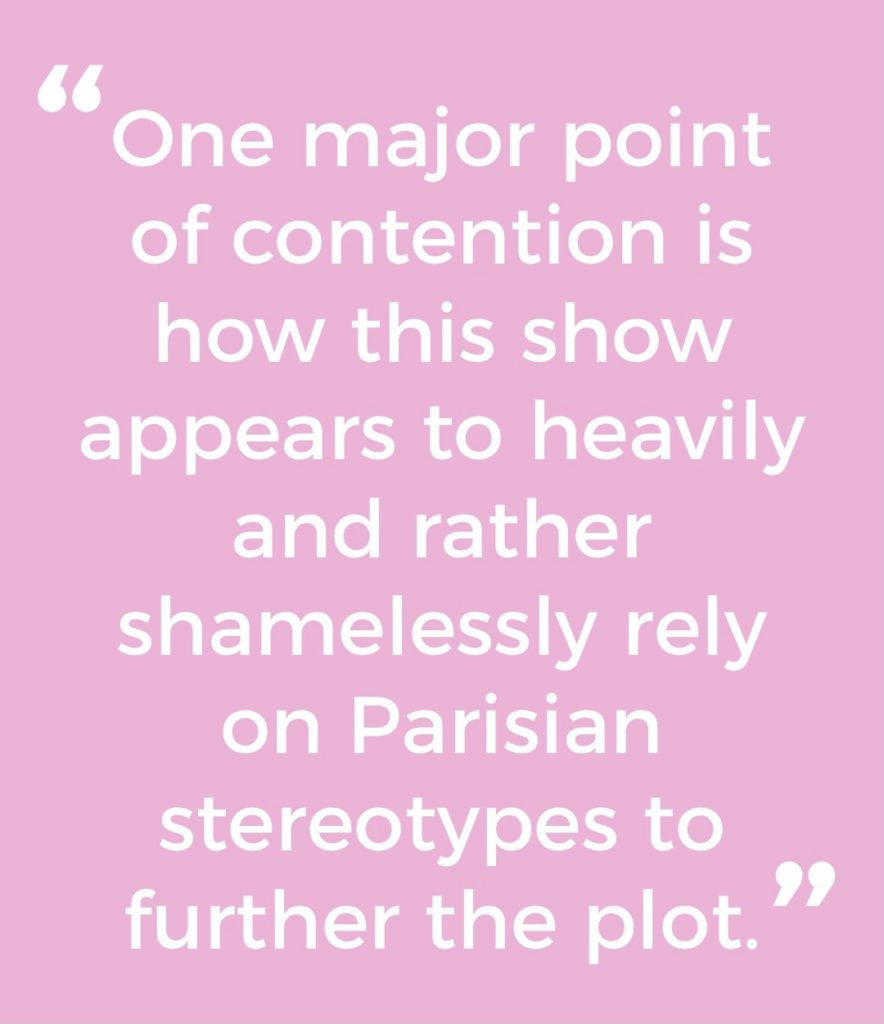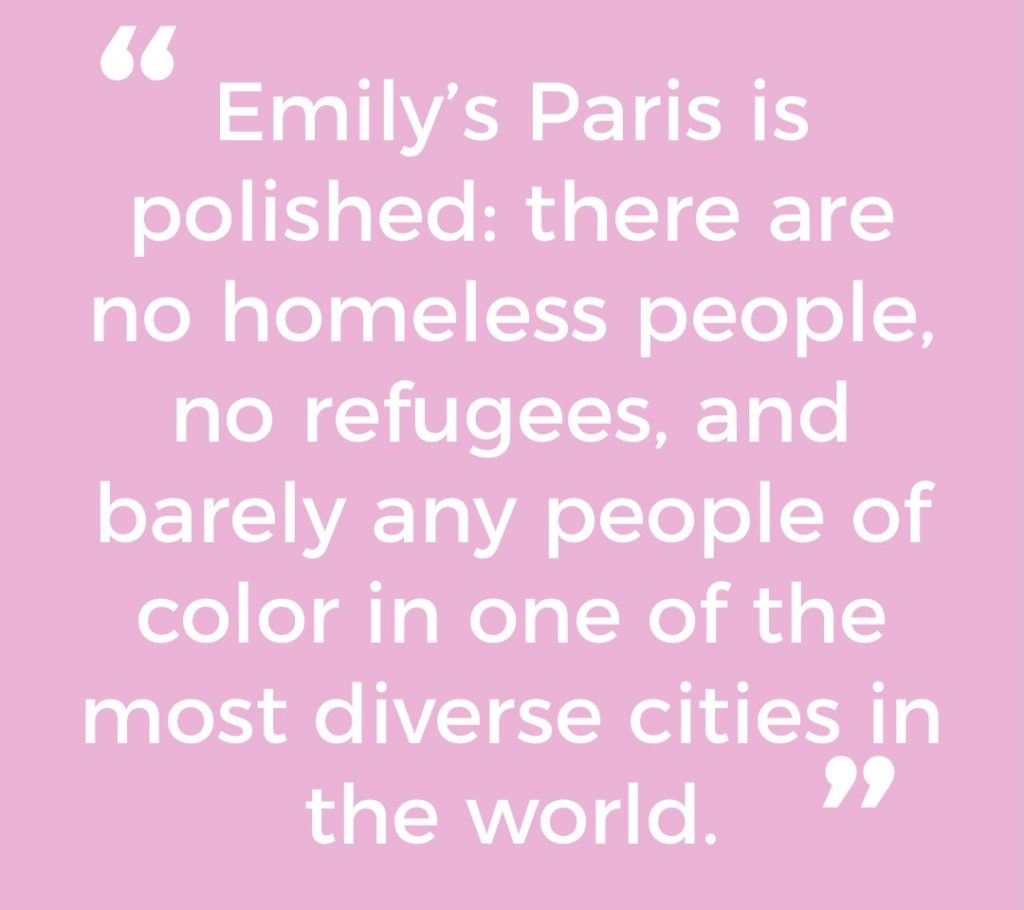Zoha Malik
Contributing Writer
“Emily in Paris” is a new Netflix series following a twenty-something as she navigates her job in the city of love. The show recently faced criticism for its vapid and unoriginal portrayal of French culture, though some argue that the unrealistic aspect was the show’s point, even its charm. Regardless, French and American people alike enjoyed picking apart some of the more ridiculous components of this Netflix original.
One major point of contention is how the show appears to shamelessly rely on Parisian stereotypes to further the plot. While Paris is generally considered a romantic city, the romance in the show was incorporated into the story by giving all French people a flippant attitude towards affairs. While discussing Emily’s boss, Sylvie, and her affair with perfume conglomerate CEO Antoine, Emily’s friend Mindy says, “the French are romantics, not realists,” insinuating that all French people find it perfectly natural and logical to commit infidelity.
The main characters are also subject to the show’s Parisian archetypes. The chic girl (Camille), the hot guy (Emily’s love interest, Gabriel, who is also dating Camille), the snob (Sylvie), the intellectual (Thomas, Emily’s other love interest), and the overtly lustful one (Antoine, although this is arguably every heterosexual man that appears in the show).
The city itself appears starkly different compared to its’ reality. Emily’s Paris is polished: there are no homeless people, no refugees, and barely any people of color in one of the most diverse cities in the world. To the astonishment of Paris natives, even her patent tourist-esque demeanor does not result in her getting pickpocketed. While this romanticization of the city was meant to be consistent with the show’s rosy themes, some found it questionable and offensive how some of the most obvious parts of the cities were deemed unworthy of being pictured.

Viewers also disliked how the show (and Emily) seems afflicted with American centrism and entitlement. From the first episode, rather than taking cultural differences in stride, Emily is baffled that French customs do not mirror those of the United States. The bottom floor was called the ground floor, not the first? The French wrote dates with the day preceding the month? They cook their meat differently? According to Emily, ceci n’est pas acceptable!
Even the very reason for Emily being there struck many as illogical. She was there as a social media guru for the French branch of her marketing firm as if hiring a French person to take on that role was out of the question. Wouldn’t it be better to have someone who actually spoke the language? In fact, why does every French person in this series speak fluent English? This dire need for an “American perspective” in a Parisian firm seemed like a convenient plot device to promote American exceptionalism.
In Emily’s defense, others say the romanticization is meant to be the fun part of the show. Like its predecessor “Sex & the City” and other similar dramas, it provides a story for us to live through vicariously. It also frequently pokes fun at American stereotypes and acknowledges Emily’s ignorance throughout the show, typically through other characters pointing it out. And, to be fair, “EIP” is targeted towards an American audience that does not care about the minute details and is likely to be less interested in watching an accurate, masterful show.

Overall, the show does not do much harm — besides its usage of token minorities — a common fault across the collection of Netflix original series. “Emily in Paris,” despite its impracticality and silliness, did give some people a brief escape into a glamorous, idyllic world that is especially inaccessible right now.
While that is a strength in itself, it never hurts to make a show a bit more honest — after all, we watch television for pleasure AND relatability. Unfortunately, with a new Chanel bag on Emily’s arm every episode, it doesn’t look like that is something we can expect from season two.











